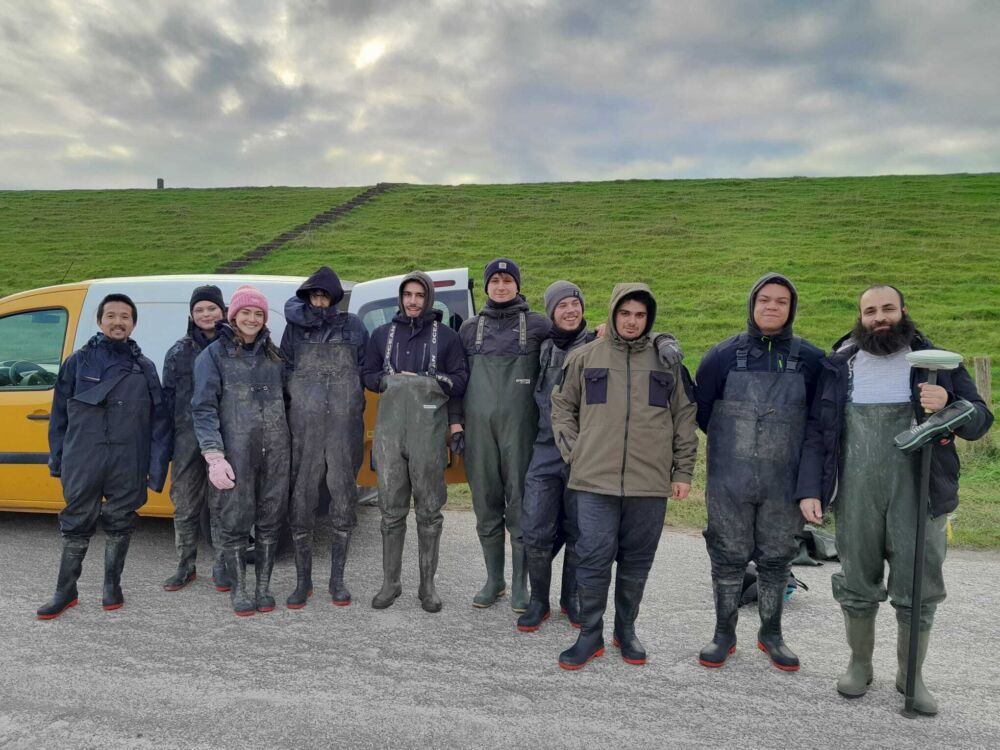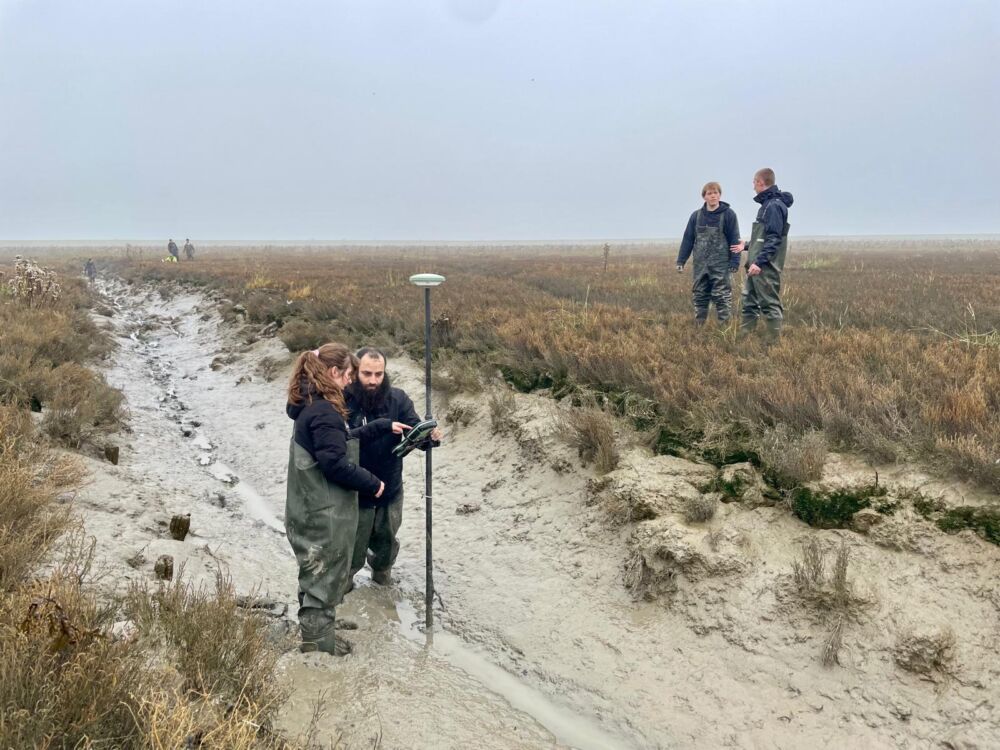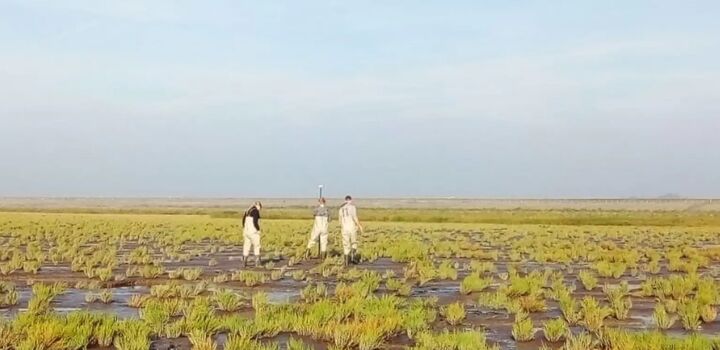‘Ready to dive into the thrilling world of extreme weather?’ With this question, the Building with Nature research group has enticed students to join the Delta Patrol research project. And it has worked. Several students from different study programmes have signed up as storm chasers. Together with researchers from Building with Nature, they will monitor extreme weather events such as storms, high water, and drought.
Lector Wietse van de Lageweg came up with the idea for a team of HZ storm chasers. The idea arose while he and his colleagues were taking measurements for a project in the Zuidgors nature reserve near Ellewoutsdijk. "Especially after the storms in 2023 and 2024, we observed some fascinating processes there. We wanted to explore this further," says Jaco de Smit, researcher and coordinator of Building with Nature. "We noticed that storms had a significant impact on the creeks in the area. After a spring tide, the erosion was immense. We believe this is due to the interventions carried out there, but we couldn’t prove it with data, because there simply wasn’t any."
According to De Smit, the effects of extreme weather on nature are generally difficult to explain. The intervals between measurements are often too long to capture the impact of a severe storm or an extended period of drought. "We need measurements taken during storms and heatwaves. Data on flow speeds, wave action, sand erosion, and sediment composition are essential for better understanding the system."

That requires a high degree of flexibility. In addition to their regular work, Building with Nature researchers cannot always head out into the field at all hours to take measurements. Yet that is precisely ' where the action is' , says De Smit. The research group therefore applied for funding from the quality improvement budget to carry out this project with students. "It is incredibly valuable to go into the field precisely during and around extreme weather events, to be out there, literally with your feet in the mud," explains Van de Lageweg. "With Delta Patrol, we offer students a unique opportunity to develop skills that will set them apart in the job market."
Muddy conditions
The Building with Nature proposal was approved, and around thirty students from programmes such as Water Management and Civil Engineering signed up. In the end, more than half of them joined different missions to Zuidgors at the end of 2024. "Jaco and Yara had warned us that it would be tough, but we didn’t expect it to be this muddy. We sank so deep at times that some students actually got stuck," says Catarina Duarte. Originally from Portugal, she studied biology there and is now pursuing a master’s in River Delta Development. "For my Biology degree, I never had to do fieldwork. I wanted to experience first-hand how the data I used to analyse in Portugal is actually collected. That is exactly what we are doing in this project." Max Pijpelink, a Water Management student from Zeeland, simply wanted to get his hands dirty. "I love nature and enjoy getting out into the field. That’s why I was eager to take part in this project."
Adrenaline rush
Yara Maljers from Building with Nature is a cultural anthropologist specialising in the complex relationship between humans and nature. In Delta Patrol, she is researching the students’ motivations for participating. "The high number of applications took us by surprise," she says. "And every student involved is genuinely enthusiastic. Some even said they would do this without earning study credits. I want to understand why. Are they joining because they are curious about research and the data collection process, or is it more about chasing that adrenaline rush?"

For now, the storm chasers are focusing solely on the Zuidgors nature reserve. "But if the project is successful, we’d like to expand to other areas in Zeeland," says De Smit. The responsibility for each mission lies primarily with the students themselves. They have a group chat where they keep an eye on the weather. If a storm is approaching, messages start flying back and forth. However, they don’t have to go out for **every** storm. But if a north-westerly storm coincides with a spring tide, they must head out with their waders, sensors, and other equipment. "That’s when you see the biggest impact on the area. These kinds of storms may not occur very often, but when they do, we need to be ready," says Duarte.
The perfect storm
Delta Patrol will run for one year. There is a chance that the group may never experience the perfect storm during this time. That’s why De Smit and Maljers are organising other fieldwork activities for students throughout the year. They are also working on a follow-up, ideally under the banner of the Delta Climate Centre. "The weather remains unpredictable," says De Smit. "So we don’t know what the outcome of this first year will be. It would be fantastic if we could turn the Delta Patrollers into a permanent team, with new groups of students joining each year. The more often the team can go out into the field, the greater the chance we’ll build a reliable dataset on extreme weather events in coastal areas, estuaries, and rivers."

Building with Nature
The lectorate Building with Nature investigates how to make maximum use of nature in coastal defense, so that in addition to safety it also offers opportunities for recreation.
Read more about the lectorate Building with Nature